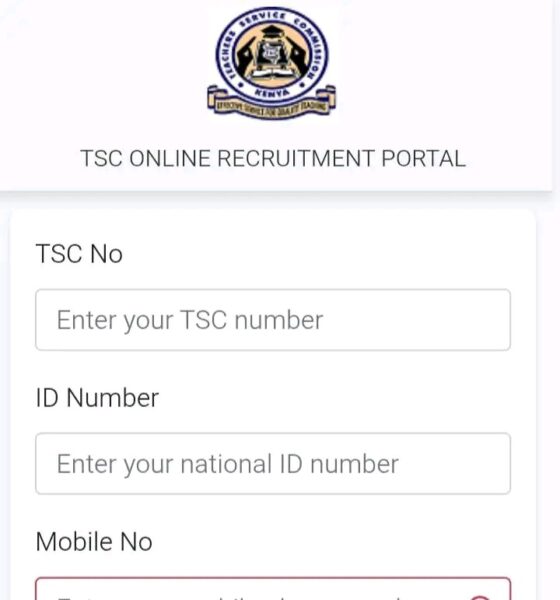
TSC Announces Digital System of Recruiting Teachers
Kenya’s Teachers Service Commission now runs fully online recruitment for teachers. The digital system aims to improve transparency, efficiency, and fairness as 24,000 new teachers…

Kenya’s Teachers Service Commission now runs fully online recruitment for teachers. The digital system aims to improve transparency, efficiency, and fairness as 24,000 new teachers…

Kenya will recruit 24,000 new teachers by January 2026, bringing total hires over three years to 100,000, as part of a broader strategy to…

The Teachers Service Commission (TSC) has introduced a new leadership model that will see each comprehensive school headed by a principal and two deputies for…

The Ministry of Education has announced plans to merge primary and junior schools into one comprehensive system under a single head, following the Presidential Working…

The Teachers Service Commission (TSC) has issued a strict directive prohibiting social activities in schools during the third term to ensure uninterrupted learning and proper…

Education CS Julius Ogamba outlines new funding and partnership strategies to address infrastructure and staffing challenges in Kenya’s Junior Secondary Schools. Kenya’s Ministry of Education…

The Ministry of Education has reaffirmed its commitment to strengthening the teaching workforce in Kenya’s Junior Secondary Schools (JSS) as part of broader reforms to…

The Ministry of Education plans major reforms for Kenya’s Junior Secondary Schools (JSS) to fix issues in staffing, infrastructure, and curriculum implementation. Learn more about…

CS Julius Ogamba has announced that students involved in indiscipline cases, including arson and riots, will sit KCSE exams outside their schools. Kenya’s education sector…